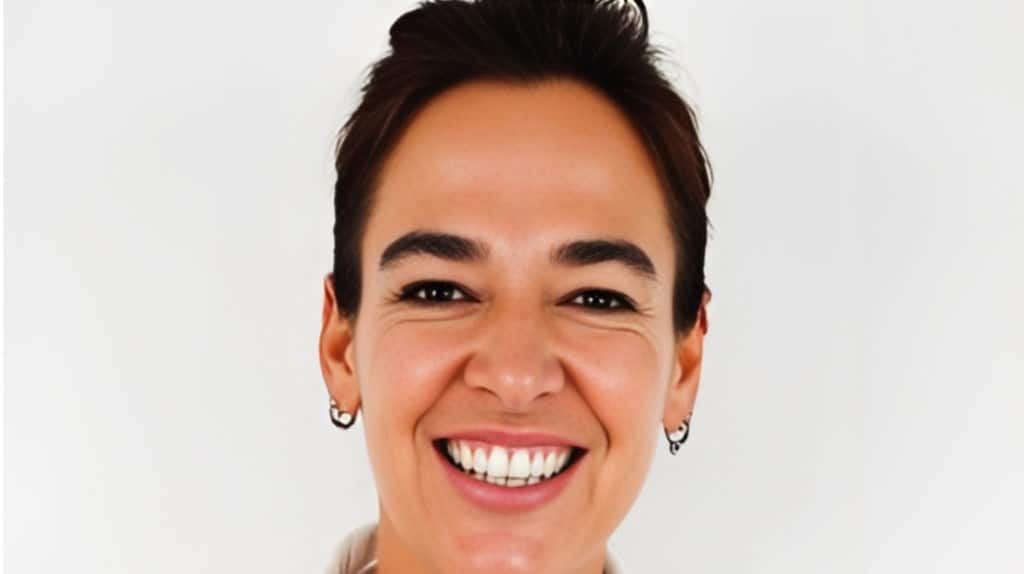Business
Page: 134
SYDNEY, Australia — Various Artists Management is now open for business in the land Down Under.
As VAM builds out its international footprint, the company establishes an office in Sydney. Leading the new affiliate is industry veteran Arwen Hunt, VAM’s head of Australia/New Zealand, with duties across the talent agency’s management, label and publishing activities. Hunt reports to CEO David Bianchi.
With the launch, VAM’s empire includes offices in London, Los Angeles and now Australia’s most populous city.
“After the successful opening of our L.A. office a few years back we decided upon further global expansions and Australia/New Zealand seemed like a logical next step, both in terms of the amount of business we have down there and its proximity and access to Asia,” comments Bianchi.
Trending on Billboard
In Hunt, VAM lands a talented international executive with a stellar CV.
Born in the U.K., Hunt entered the music industry as a 17-year-old and has soaked-up experience as an artist manager, A&R, music publisher, label manager, product manager and promoter.
“It took one meeting with Arwen to know that she was the person to run Various in Australia/New Zealand,” explains Bianchi. “Her management background with Catfish and the Bottlemen and Kate Nash was super-impressive. Mixed with her publishing background at Universal she is just perfect! We are so happy to welcome her to the global VAM Family”.
Most recently, Hunt served as vice president, creative / head of A&R for Universal Music Publishing Group Australia and New Zealand, signing and A&Ring such artists and writers such as PJ Harding, Ruel, Lime Cordiale, Idris Elba, DMA’S, Odette, Timmy Trumpet, Alex the Astronaut, Guy Sebastian, Jessica Mauboy, Gang of Youths, Vera Blue, The Chats, Styalz Fuego, Hiatus Kaiyote, CW Stoneking, D.N.A. and others.
Previously, she was as an artist manager and partner at ATC London, where she guided the careers of Catfish and the Bottlemen, Kate Nash, Augustines, Half Moon Run, Black Lips (U.K. & Europe), Tegan and Sara (U.K. & Europe), and more.
“If you’re lucky enough to find your tribe in this often brutal industry, you find a way to work together. That’s exactly what happened when I first sat down with the VAM team, and now, here we are,” Hunt comments in a statement, issued Jan. 30.
VAM’s team “not only have a knack for identifying incredible musical talent,” she continues, “they’re also astonishingly adept at handpicking the right people to grow VAM and the careers of their artists and writers.”
The team culture is “one that inspires and excites me more than any other I’ve encountered in my lifelong career, and exactly what working in music should be about: a shared vision and exuberant passion and belief in the art they represent; an incessant drive to kick down doors for their artists, clearing the path for them so they can progress; a team that fights together, grows together, celebrate wins together, and inspires and supports each other.”
The VAM roster includes Tom Grennan, Good Neighbours, Melanie C, Ashnikko, The Libertines, Supergrass, La Roux and Rose Gray.
Esha Tewari is taking the next big step in her career. The rising singer-songwriter has officially signed with Warner Music in collaboration with Atlantic Records, setting the stage for a massive year ahead.
The deal, announced today (Jan. 30), marks a pivotal moment for Tewari, who built an impressive following through TikTok and streaming platforms.
Trending on Billboard
“I am super excited to welcome Esha Tewari to the Warner Music family and to be working with Atlantic Records to take her music to a global audience,” Rosen said. “Esha is an incredible talent with a unique ability to connect with her fans through her songs, and I can’t wait to work with her to amplify her music and her authentic storytelling to every corner of the world.”
For Tewari, the decision to sign with Warner wasn’t just about major-label backing—it was about finding a team that aligned with her fiercely independent vision.
“I’m so excited to be a part of the Warner Music family,” Tewari comments in a statement. “From LA to New York, we met with executives who spoke about an evolving label system that now gives artists more ownership and control. Warner stood out as their actions matched their words.”
She continues, “Especially this early in my career, the deal I have done with Warner Music gives me the ability to remain hands-on with the whole creative vision, and allows me to remain the leader of my now expanded team.”
Tewari first started making waves in February 2024 by posting covers and original songs on TikTok, quickly amassing a loyal fanbase she calls “Tewarians.”
Her independently released single “Beautiful Boy” went viral, catapulting her to over 601,000 monthly Spotify listeners, 217,000 Instagram followers, and 172,000 TikTok followers.
Her success continued with the release of two EPs—i can and Better Off—which helped establish her indie-folk sound. Now, she’s gearing up for her third EP, led by the heartfelt new single “You Were Mine,” which has already racked up 17,000 TikTok creations using the original sound.
With her career gaining momentum, Tewari is preparing for a North American tour in mid-2025, but first, she’s returning to Australian stages this April and May for her second national headline tour.
If the demand is anything to go by, she’s becoming a serious live force—Sydney, Brisbane, Melbourne, and Perth have already sold out, prompting a second show in Perth, while Adelaide is nearing capacity. It follows her completely sold-out Australian tour in November 2024.
Amazon informed customers on Wednesday (Jan. 29) that the prices for Amazon Music Unlimited, the company’s on-demand music streaming service, are increasing in the U.S., U.K. and Canada. In the U.S., the individual plan will rise to $11.99 per month from $10.99 per month, according to a company spokesperson. For Prime members, the monthly cost […]
Red-hot Latin upstart FloyyMenor has signed with Independent Artist Group for booking. The signing follows the huge success of the 19-year-old Chilean singer-songwriter’s reggaeton hit “Gata Only” with Cris MJ, which was named TikTok’s Global Song of the Summer and Global Song of the Year in 2024. According to a press release, the track saw 50 million creations on TikTok, […]
On Sunday (Jan. 26), news broke that Universal Music Group and Spotify had struck a direct deal affecting both the company’s recorded music and publishing royalty payments. The recorded music side of the deal marked an important step forward in UMG’s so-called “Streaming 2.0” plan, but the publishing side of it is even more noteworthy.
This agreement represented the first direct deal between a music publisher and Spotify since the passage of the Music Modernization Act in 2019, and it effectively overrides the government-regulated statutory rate for mechanical royalties in the U.S. with a private deal between the two companies. While the jointly issued press release about it was vague on details, sources close to the deal say it offers better pay to UMPG and its songwriters than before, and it signals that Spotify might be ready to bury the hatchet with U.S. publishers overall. But it’s not over yet.
Trending on Billboard
First, the context: In March 2024, Spotify added audiobooks to its platform and reclassified its premium, duo and family subscription tiers as “bundles” in the U.S., a classification streamers can use to pay discounted mechanical royalty rates for musical works. This means that Spotify started splitting the money it once only paid to U.S. music rights holders to pay for both music and books, leading to a sudden and dramatic drop in mechanical streaming royalties. (At the time, Billboard estimated a decrease of $150 million in U.S. mechanical royalties for songwriters and publishers over the first 12 months of the new classification, compared to what they would have made had the tiers never been reclassified.)
This led to a nearly year-long war between the publishers and Spotify, led vigorously by the National Music Publishers’ Association (NMPA), which launched a multi-pronged retaliation against Spotify. In the months that followed, the NMPA sent Spotify cease and desist notices for podcast and video content on its platform that were allegedly infringing on music IP; submitted a legislative proposal, asking for the overhaul of the statutory license; sent complaints to the FTC and nine state attorneys general; and more. The Mechanical Licensing Collective jumped in too, suing Spotify in May for allegedly “unlawfully” changing its subscriptions to bundles.
Then, in a surprisingly-timed announcement, the MLC’s lawsuit against Spotify was dismissed this morning (Jan. 29) with a federal judge saying that Spotify’s move to bundling was supported by “unambiguous” regulations. This timing was good for Spotify. Had the ruling come down before the direct deal with UMPG, the outcry from publishers about it would have been far worse (not to say there won’t still be some outcry). The judge is not giving the MLC a chance to refile the case, saying the law is clear and that amending the accusations would be futile, although the MLC can challenge the ruling at the federal appeals court.
But since this ruling came after the UMPG news became public, publishers now have hope for another way out of the Spotify bundle: direct deals. Although sources close to the situation say they are not aware of any other negotiations going on between Spotify and other publishers to date, the other major publishers now have precedence to argue for similar deals with Spotify. The bigger question is what happens to the small indie players. Will they be subjected to the original bundle rate while the majors get better terms? Does this further the monetary divide between indie and major publishers? UMG is the world’s largest music company and the world’s second largest publisher, after all. Not everyone has that kind of leverage.
The NMPA told Billboard at the time of the UMG-Spotify deal that it was not making any changes to the moves it had already set in motion against Spotify — and neither was the MLC. (Of course, this all came before the MLC’s lawsuit was dismissed.) The NMPA struck a somewhat hopeful tone in a statement about the UMG-Spotify deal, saying it was “good news for the entire industry” and that “a rising tide lifts all boats, and this signals that Spotify is coming back to the table.”
The question remains, however, why Spotify came back to the table with UMG for a new publishing deal in the first place. Spotify had found a way to pay less for songs. Why did Spotify make this concession?
There are a few possible answers to that. For starters, the NMPA had essentially promised that, until Spotify relented on bundling, it would make any future moves the streamer wanted to make difficult. The NMPA’s cease and desist letter cited a Wall Street Journal report that Spotify eventually wanted to offer a “remix” feature to speed up, mash up and otherwise edit sound recordings; the NMPA warned that if Spotify released “any such feature … without the proper licenses in place from our members” it “may constitute additional direct infringement.” Given the NMPA’s overall tone throughout this letter, it seems clear that this was a warning to Spotify that it needed publishers’ cooperation for remix features.
Spotify has also teased other features that would require the platform to get new, voluntary licensing approval from the publishers. In October, Spotify began hosting music videos in 97 countries — but, notably, not in the United States. In November, Spotify CEO Daniel Ek teased the idea of a higher cost ultra-premium tier, including more offerings for top fans such as high fidelity listening and, vaguely, “a bunch of other things.” A few weeks ago, Spotify partnered with The Weeknd to stream his Billions Club Live show exclusively on the platform. By developing a solution with UMPG, and maybe other publishers in the future, Spotify is signaling that it is ready to make nice so that it can push forward with its plans for new products.
It also must be noted that all of these publishing companies, as well as Spotify, are global.
While the bundling situation is specific to the United States, UMPG and other publishers are negotiating with Spotify for licensing deals in multiple markets worldwide where publishers have room to negotiate. With UMG’s direct deal, UMPG and Spotify can move forward with their plans to grow their income and presence in emerging markets — something both Spotify and UMG shareholders are keen on — without wasting time and resources threatening each other in every new licensing conversation.
It turns out that playing nice is helpful for both parties — and the market is rewarding that. Since the announcement of their new direct deal, the share price of both companies saw a positive bump. Even Warner Music Group saw upward movement, since some analysts believe the UMG deal opens the door for other major music companies to do the same.
Though it constitutes a step in the right direction, only time will tell how, and if, other direct deals between Spotify and publishers develop, and if this might grow the chasm between majors and indies.
AEG has unveiled the company’s plans for realigning its international business divisions, promoting Adam Wilkes to the newly created position of president/CEO of AEG Presents, Europe and Asia-Pacific and elevating Alex Hill to lead AEG’s global real estate and venue operations outside the U.S. in the new position of president/CEO of AEG International. In his new […]
Wasserman Music has hired five key executives to expand its client service offerings worldwide, the company announced Wednesday (Jan. 29).
“As our clients’ needs continually expand along with our ever-evolving industry, we’ve continued to stay ahead of these changes so that we’re always able to provide best-in-class service to our artists and partners,” said Wasserman Music President Lee Anderson in a statement.
The new hires include Vince Amoroso, who joins Wasserman Music as senior vp of artist services in the company’s New York office. Amoroso will help develop new revenue opportunities for clients across industries, including commercial and digital partnerships, merchandise and e-commerce, original content and IP, gaming, film, TV, and books. He previously served as chief marketing officer for independent music company The Other Songs and as senior vp/head of marketing and business development at management services company mtheory, where he worked with A$AP Rocky, Sabrina Carpenter, J. Cole, Skrillex, Diplo, FKA twigs and Florence + the Machine.
Also in New York, Georgia McGurk joins as vp of event strategy & hospitality, taking a newly created role to enhance the broader market presence of Wasserman Music and its artists through the strategic development and execution of high-touch VIP and white-glove experiences for clients, partners and industry professionals across sectors. McGurk has spent a decade working in the sports and entertainment industries at companies such as IMG/Endeavor and, most recently, BSE Global, the parent company of the Brooklyn Nets and Barclays Center.
Elsewhere, Sharmaine Akhigbe joins as vp of brand partnerships in Wasserman’s London office, where she will develop and manage new partnerships worldwide for clients and brands across the U.K. and Europe, as well as new opportunities for Wasserman Music’s full client roster. She previously served as director of premier artists at Premier Model Management.
Trending on Billboard
Also joining Wasserman Music is Karina Gonzalez as VP of festivals for Wasserman’s L.A. office, where she will focus on client bookings for Latin music festivals in the U.S. and contemporary festivals across Latin America. She previously served as vp of touring & development at Latin concert promoter Zamora Live, where she was instrumental in expanding the company’s reach across Central America and the U.S. Gonzalez also served as an agent at UTA focused on the Latin American market for major music artists including Karol G, Lauryn Hill, Bring Me the Horizon, AURORA and Arlo Parks.
Lastly, Yasi Agahnia joins as director of corporate & special events in Wasserman’s L.A. office, where she will primarily focus on private event bookings for artists across the electronic, hip-hop and R&B genres, though she will also work with artists across Wasserman Music’s full client roster. Agahnia previously worked at CAA, where she rose from working in the company’s mailroom to becoming an agent in its private & corporate events division.
Wednesday’s news follows Wasserman Music’s announcement earlier this month that it had onboardedthree top executives from rival agency WME — Kevin Shivers, James Rubin and Cristina Baxter — to join its executive leadership team.
Wasserman Music
How much are 1,000 streams worth? A new report from catalog investor and lending platform Duetti attempts to answer this question.
According to the report, released Thursday (Jan. 23), independent artists and others who own master recordings received about $3.41 per 1,000 streams globally in 2024.
That global payout rate is down from $4.04 per 1,000 streams in 2021, according to the study, which included data related to Spotify, Apple Music, YouTube, Amazon Music, TIDAL, Qobuz, Deezer, SoundCloud and Pandora.
Of those companies, Amazon Music paid the most at $8.80 per 1,000 streams in 2024.
While the rate paid per 1,000 streams has declined each year since 2021, Duetti CEO Lior Tibon says rates appear to be plateauing because the higher price of streaming subscriptions at some companies is raising royalty payouts. Tibon says they also found that the portion of overall payouts coming from YouTube, which Duetti found pays more than Spotify, increased for the artists in its study — while the portion coming from Spotify for those artists decreased 2%.
Trending on Billboard
Duetti, which provides financing for independent artists in exchange for a stake in their master recordings, says that Spotify’s Discovery Mode and its greater adoption outside the U.S. are the main drivers driving down payout rates, even though Spotify raised subscription prices in most major markets. Artists who sign up their tracks for Spotify’s Discovery Mode program gain more algorithmic exposure on the platform through Spotify Radio and autoplay in exchange for a lower royalty rate. The program, which was expanded in 2023 to be open to anyone with access to Spotify For Artists, has been criticized by music trade organizations and some in Congress who are concerned it puts artists in a position where they feel the need to pay to play.
Spotify did not immediately respond to a request for comment.
The growth of Discovery Mode’s contribution to overall streams for independent artists in this study is slowing, which means its impact on payout rates is starting to stabilize, Tibon says.
“We are at the point where it is not going to continue to increase as much as it did over prior years, and the growth of YouTube is counteracting the impact of its growth outside the U.S. and [the growth of] discount plans,” Tibon says.
Certain subgenres, such as hyperpop, saw slightly higher royalty payouts — as much as 30 cents more per 1,000 streams — than mainstream genres, in part because artists who produce this music less often enroll in Discovery Mode, according to the report.
WHO PAYS WHAT
According to the study, Amazon Music pays the highest royalty rate of any streaming service at $8.80 per 1,000 streams. (Amazon Music services are bundled with a Prime membership, which costs $139 per year.)
TIDAL pays the second most at $6.80 per 1,000 streams, while Apple Music pays $6.20 per 1,000 streams “due to their foothold in higher price markets, and the lack of ad-supported tiers,” the report found.
Though YouTube’s payout rates vary significantly among artists, Duetti found that on average across the independent artists in its study, the video streaming platform paid out $4.80 per 1,000 streams in 2024.
Meanwhile, Spotify paid out around $3 per 1,000 streams due to “high usage, geographical mix, reliance on discounted [and] free plans, and their Discovery Mode program,” according to the report.
Counter to conventional wisdom, going viral on TikTok only resulted in higher royalty payouts 15% of the time, the report found.
Amazon, TIDAL and YouTube did not immediately respond to requests for comment.
TikTok has said in the past that it plays a major role in artists getting their songs discovered, claiming that 84% of all songs on the Billboard Global 200 in 2024 started as viral hits on its platform.
DATA FROM CATALOG VALUATIONS
Founded in 2022, Duetti is a catalog investment company that provides independent artists with capital — amounts range from $10,000 to $3 million — in exchange for a stake in the master recordings of certain songs. The data Duetti uses to value artists’ catalogs before buying them — including royalty statements, streaming performance and other analytics — underpin the findings in the report.
Duetti works with more than 500 artists, including Shayne Orok, known for his Japanese versions of pop songs, and Adán Cruz, a Mexican rapper and songwriter, to promote their works digitally, including across Duetti’s network of YouTube channels.
“YouTube has always been the foundation of my career, allowing me to connect directly with fans and build a sustainable livelihood doing what I love,” Orok said in a statement from Duetti. “Partnering with Duetti has taken that connection to the next level by helping my music reach new audiences in ways I couldn’t achieve on my own.”

A new federal report on artificial intelligence says that merely prompting a computer to write a song isn’t enough to secure a copyright on the resulting track — but that using AI as a “brainstorming tool” or to assist in a recording studio would be fair game.
In a long-awaited report issued Wednesday (Jan. 29), the U.S. Copyright Office reiterated the agency’s basic stance on legal protections for AI-generated works: That only human authors are eligible for copyrights, but that material created with the assistance of AI can qualify on a case-by-case basis.
Amid the surging growth of AI technology over the past two years, the question of copyright coverage for outputs has loomed large for the nascent industry, since works that aren’t protected by copyrights would be far harder for their creators to monetize.
Trending on Billboard
“Where that [human] creativity is expressed through the use of AI systems, it continues to enjoy protection,” said Shira Perlmutter, Register of Copyrights, in the report. “Extending protection to material whose expressive elements are determined by a machine, however, would undermine rather than further the constitutional goals of copyright.”
Simply using a written prompt to order an AI model to spit out an entire song or other work would fail that test, the Copyright Office said. The report directly quoted from a comment submitted by Universal Music Group, which likened that scenario to “someone who tells a musician friend to ‘write me a pretty love song in a major key’ and then falsely claims co-ownership.”
“Prompts alone do not provide sufficient human control to make users of an AI system the authors of the output,” the agency wrote. “Prompts essentially function as instructions that convey unprotectible ideas.”
But the agency also made clear that using AI to help create new works would not automatically void copyright protection — and that when AI “functions as an assistive tool” that helps a person express themselves, the final output would “in many circumstances” still be protected.
“There is an important distinction between using AI as a tool to assist in the creation of works and using AI as a stand-in for human creativity,” the Office wrote.
To make that point, the report cited specific examples that would likely be fair game, including Hollywood studios using AI-powered tech to “de-age” actors in movies. The report also said AI could be used as a “brainstorming tool,” quoting from a Recording Academy submission that said artists are currently using AI to “assist them in creating new music.”
“In these cases, the user appears to be prompting a generative AI system and referencing, but not incorporating, the output in the development of her own work of authorship,” the agency wrote. “Using AI in this way should not affect the copyrightability of the resulting human-authored work.”
Wednesday’s report, like previous statements from the Copyright Office on AI, offered broad guidance but avoided hard-and-fast rules. Songs and other works that use AI will require “case-by-case determinations,” the agency said, as to whether they “reflect sufficient human contribution” to merit copyright protection. The exact legal framework for deciding such cases was not laid out in the report.
The new study on copyrightability is the second of three studies the agency is conducting on AI. The first report, issued last year, recommended federal legislation banning the use of AI to create fake replicas of real people; bills that would do so are pending before Congress.
The final report, set for release at some point in the future, deals with the biggest AI legal question of all: whether AI companies break the law when they “train” their models on vast quantities of copyrighted works. That question — which could implicate trillions of dollars in damages and exert a profound effect on future AI development — is already the subject of widespread litigation.
In December, Influence Media Partners, the music investing company backed by BlackRock and the Warner Music Group, joined the growing music industry trend of using asset-backed securitization to finance acquisitions and operations by raising about $360 million through a private placement in a deal lead by Goldman Sachs, sources say.
Besides the Influence Media deal, the waning months of 2024 also saw Concord raising $850 million through its third asset-backed bond offering run by Apollo Global Management in October; while Blackstone led a $1.47 billion securitization for its Hipgnosis Song Asset company. In each deal, the bonds and notes are collateralized by the music assets and income streams of the respective companies. The offerings from Concord and Hipgnosis have public filings with the appropriate regulatory agencies, but the Influence Media offering, as a private placement, does not have to file with the U.S. Securities and Exchange Commission.
As interest rates rise, asset-backed securities (ABS) are expected to become increasingly popular funding vehicles for music companies because they have fixed, five-year interest rates. In the past, Concord CEO Bob Valentine has compared these securitizations to fixed, low-interest-rate loans.
Trending on Billboard
Influence Media co-managing partner Lynn Hazan, the former CFO for Epic Records, worked with BlackRock executives on the deal, according to sources.
Influence Media, which was founded in 2019, has since bought stakes in some 30 music catalogs, and in early 2022 received additional funding to the tune of $750 million provided by BlackRock and the Warner Music Group. The acquired catalogs include music by Enrique Iglesias, Future, Logic, Julia Michaels, Ali Tamposi, Tainy and Harry Styles collaborator Tyler Johnson. The new funding is expected to be deployed in buying more music catalog assets.
Initially, it looked like the Influence Media Partners asset-backed securities offering was slow in coming together as bond investors looked at the Concord and Hipgnosis offerings, but in the end, the Influence offering — which also had Truist as the co-structuring and co-placement agent — came together nicely for the New York-based music investment company, attracting funding from about a half-dozen investors, sources say.

 State Champ Radio
State Champ Radio 









